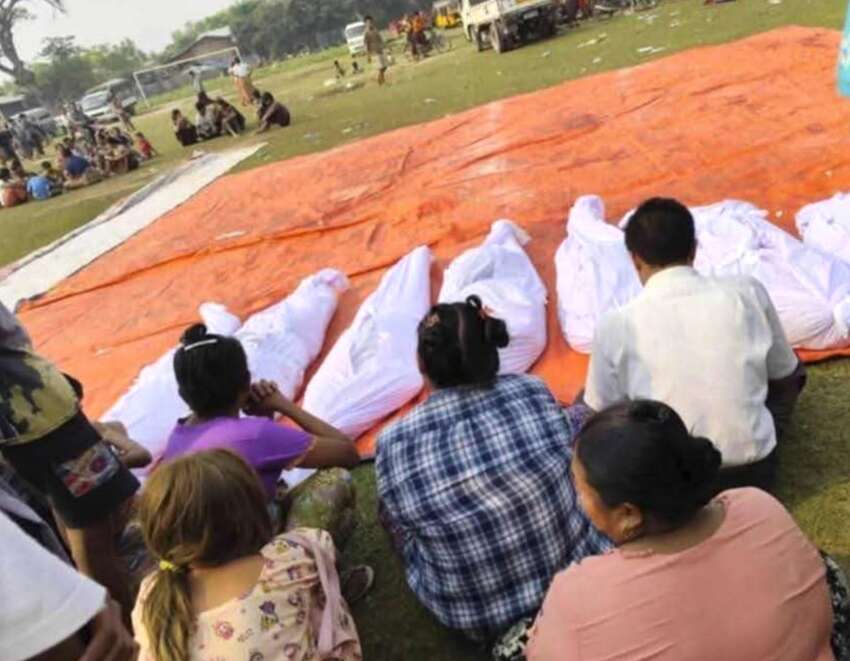
The National Unity Government (NUG) has announced the designation of a National Week of Public Mourning and Solidarity from April 13 to April 20 in response to the recent earthquake that struck central Myanmar. During this period, the government has called upon people both within and outside the country to engage in three key activities: performing meritorious deeds, offering prayers, and demonstrating solidarity with earthquake victims. This initiative aims to provide collective support and comfort to those currently suffering from the aftermath of the natural disaster.
The NUG has outlined specific ways for people to participate in this week of mourning and solidarity. These include signing condolence books, offering flowers, wreaths, and floral arrangements at designated locations such as NUG foreign ministry representative offices and diplomatic missions. People are also encouraged to conduct memorial services and prayer ceremonies according to their local customs and religious traditions. The government has emphasized the importance of showing support for both the victims and their surviving family members through various cultural and religious practices, including merit-making activities and sharing blessings in accordance with respective religious customs.
The NUG has highlighted the particularly challenging circumstances faced by earthquake victims, noting that even during this crisis, the military council continues to conduct daily airstrikes against civilian populations. They have also pointed out the military council’s mismanagement during the third wave of COVID-19, which resulted in thousands of preventable deaths, as well as the unnecessary loss of life during storms and floods due to poor disaster management. The NUG has committed to pursuing justice for these incidents and ensuring accountability for the lives lost due to the military council’s negligence and actions.
While the NUG successfully provided comprehensive assistance within 72 hours to earthquake victims in areas under its control, they have expressed deep regret for their inability to directly assist those in regions controlled by the military council. The government has issued a sincere apology to the affected populations in these areas, acknowledging the limitations they face in providing immediate relief to all earthquake victims across the country. This situation underscores the ongoing challenges in delivering humanitarian aid in Myanmar’s complex political landscape, where access to affected populations is often restricted by military control.



